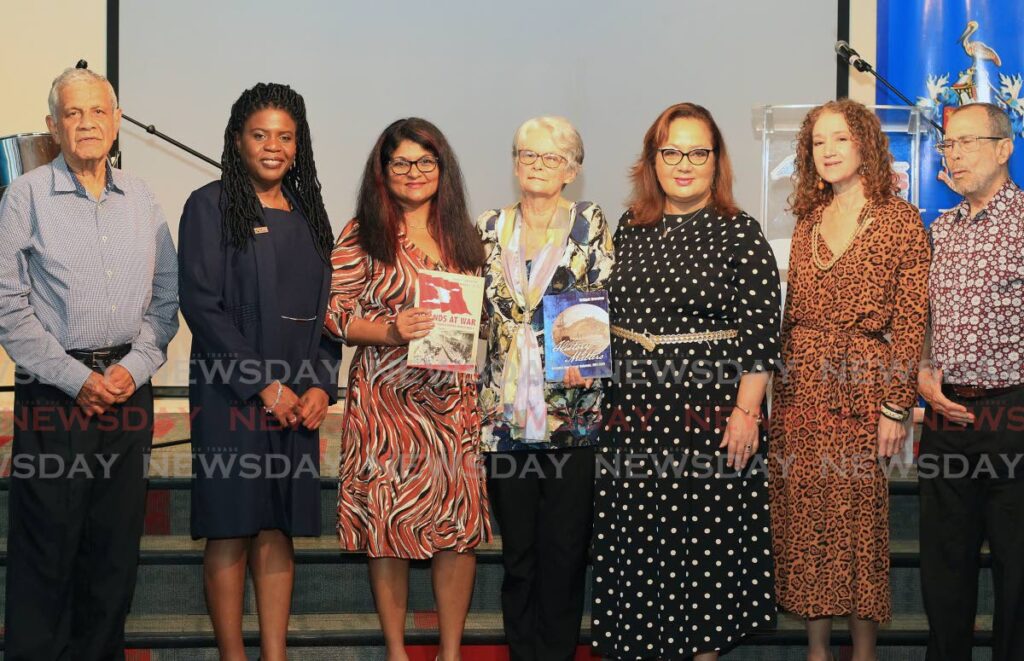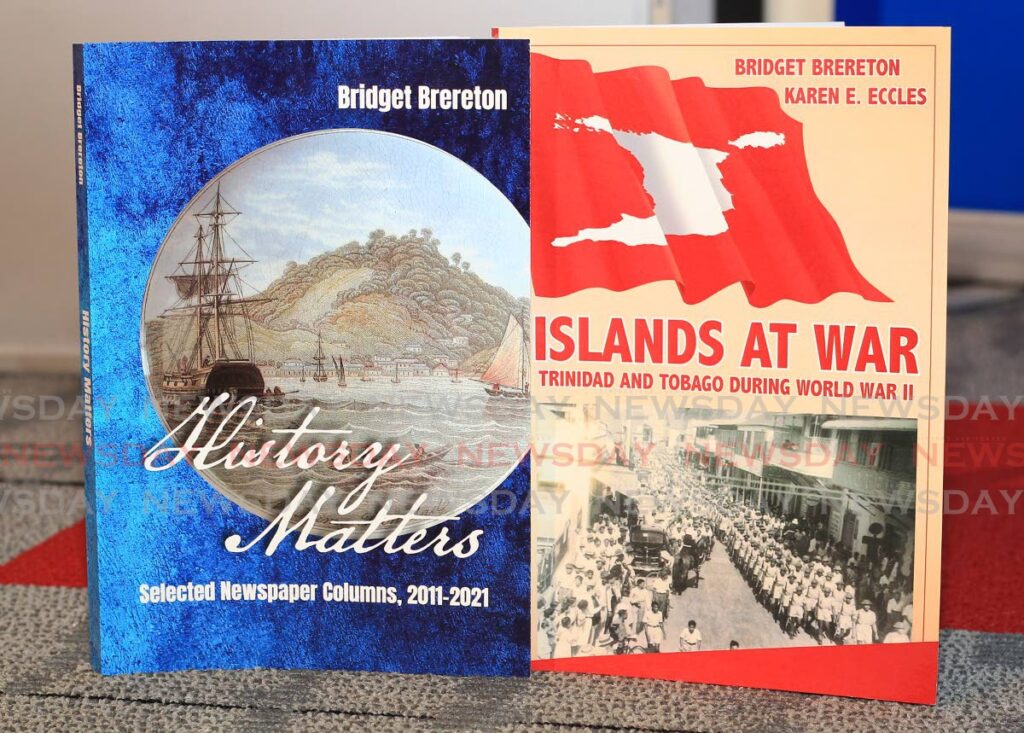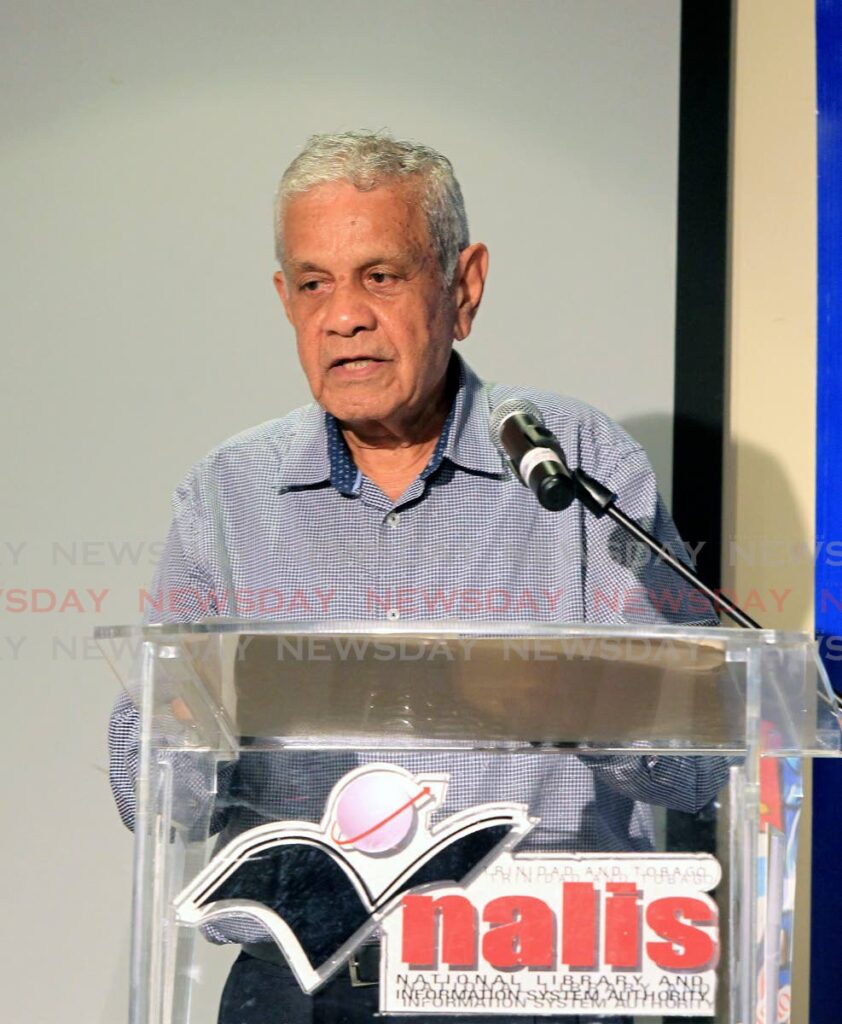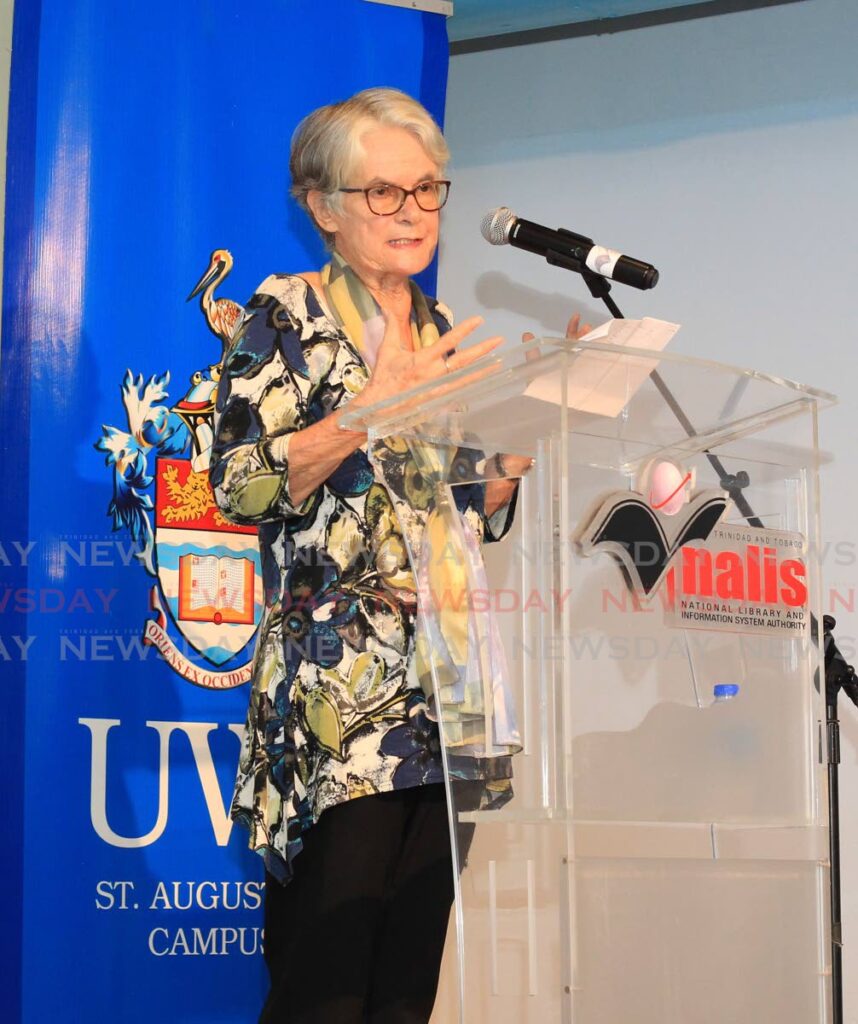Women make history in new books

WOMEN's role in history, including the World War II period (1939-1945) in Trinidad and Tobago, was highlighted in two books published by historians Professor Emerita Bridget Brereton and Dr Karen Eccles at the National Library, Port of Spain on Thursday – the day before Armistice Day (November 11) marking the end of World War I (1914-1918.)
The books were Brereton's History Matters: Selected Newspaper Columns 2011-2021 and Islands at War: TT during World War II by Brereton and Eccles.

The launch was chaired by Dr Glenroy Taitt of the Alma Jordan Library, UWI, St Augustine, with a welcome by Nalis executive director Paula Greene.
UWI, St Augustine principal Prof Rose-Marie Belle Antoine, in her remarks, praised Brereton for her "calm, unbiased advice" and "very rational, empathetic approach."
Historian Prof Brinsley Samaroo, reviewing Islands at War, said history should provide guidelines for the future. He said the war years were a complicated slice of TT's history, with US occupation, TT becoming the Commonwealth's biggest oil producer and a takeover target for German ambitions, while seeing an upswing in local agricultural production displacing the influence of a colonial cartel, temporarily. Samaroo's favourite chapter was Forgotten Women of World War II, a detailed probe into the lives of ordinary women – nurses, teachers, telegraph operators and social activists.
"These women operated in a world dominated by men who dictated that upon marriage a woman had to resign from government employment." Bigger jobs went to British women.

November 10, 2022. - Photo by Roger Jacob
Local women, however, pitched in to help to bail Britain out of the war, a record of their lives surely now inspiring to modern women.
"Chapter two revisits the story of Jean and Dinah through the sexploitation of local women by the Americans."
He said calypsonian Slinger "Mighty Sparrow" Francisco had little sympathy for such women abandoned by the Americans.
Samaroo said the war stimulated Carnival, calypso and steelbands, as the Americans craved local entertainment. He said writers such as VS Naipaul, Ralph de Boissiere and Sam Selvon had recreated wartime scenarios in their books, the period nourishing the creative impulse.
Lamenting a dearth of post-colonial writing especially on women's role in creating a Caribbean space, he welcomed the book as a labour of love.
Commenting on History Matters, Judy Raymond, writer and editor in chief of Newsday, considered the place of history in modern TT, Brereton's collection of opinion columns and Brereton's wider professional life.
"As many writers and no doubt any historian will tell you, the past is never dead; it’s not even past," she said. "There are still people who are under the impression that we don’t have much history, recorded or otherwise, though whether you know it or not, it’s actually always with us, like the river that still runs below this building."
She said the book was a reminder that newspapers were not only about the latest murders, insults traded in Parliament or who had just beaten the West Indies, but also about opinions on issues such as current affairs, books, art or history.
Raymond said the collection of news columns showed TT's wealth of history.
"These columns are perfectly designed and targeted: they’re short, they’re easily digested, and they offer enlightenment on subjects you didn’t know anything about, and deeper or fresh insight into things about which you knew a little. They’re readable, but they don’t exaggerate or, worse yet, take liberties with the facts for effect."
She quoted Brereton as saying truth in history was notoriously tricky. Raymond said while some had viewed Governor Sir Thomas Picton as a hero who died nobly at the Battle of Waterloo (1815), this year his statue had been relegated to a back room in Wales's National Museum. Brereton, she said, had mentioned Picton, but was more interested in Luisa Calderon, the local girl he was tried for torturing, plus Picton's companion Rosette Smith, a mixed-race woman who had nevertheless done a roaring trade in buying and hiring out her enslaved compatriots.
Raymond was pleased the book includes the voices of women, otherwise silenced or stolen.
She hailed Brereton for conveying complex ideas to the general reader via a newspaper column, getting many details into a very small space without looking crammed.
"Not only is she a professor emerita of our university, who has influenced generations of students through her teaching; she’s also been a public intellectual, through sitting on various government committees, and panels of judges of awards, or taking part in the Bocas Lit Fest."

Brereton has written, edited and contributed to many publications, Raymond related.
"She has been unfailingly generous with her time, knowledge and encouragement to countless researchers and writers, whether fellow academics, journalists or random people who impudently sally into her territory now and again.
"And now she’s done the same for the fortunate people who will buy or be given a copy of this book, dip into it, and find themselves re-emerging into the 21st century hours later, surprised, entertained, and more knowledgeable than they were when first they opened it."


Comments
"Women make history in new books"